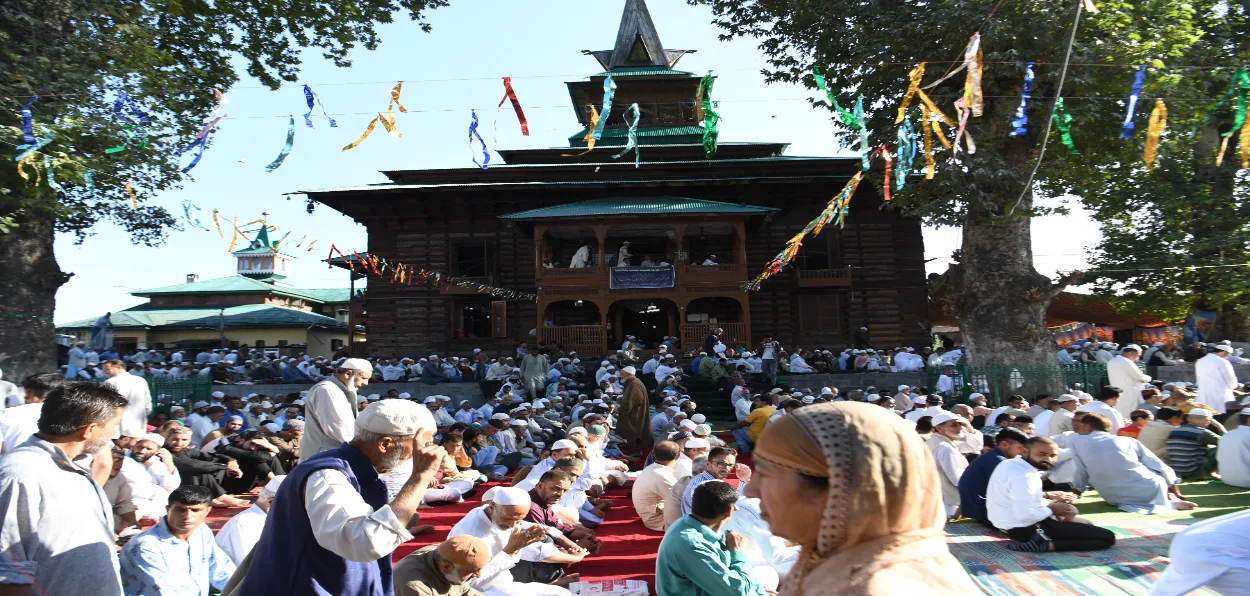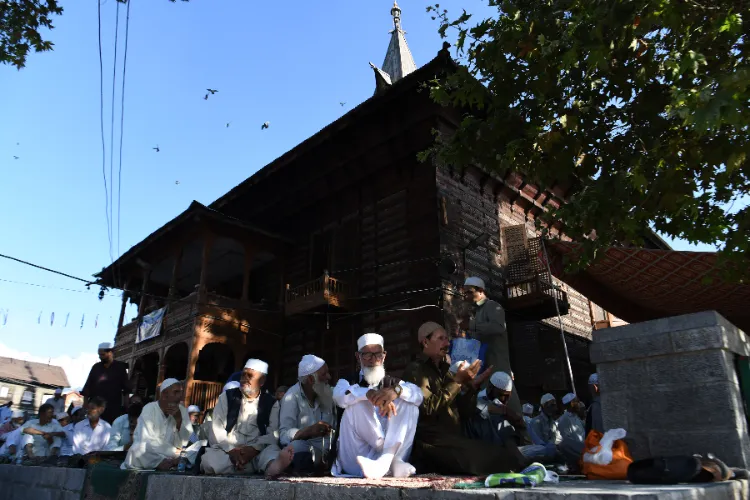
Dr. Hafeez Ur Rahman
The Holy Quran contains several verses that emphasize tolerance, inclusivity, and coexistence and teaches, “Love for humanity what you love for yourself.” Islam teaches all humans are equal before God, regardless of race, faith, class, or nationality. Prophet Muhammad said: “Keep God in mind wherever you are; follow a wrong with a right that offsets it; and treat people courteously.”
The Quran says, “The best amongst you is whose character is the best....and Prophet Muhammad said in his last sermon said…‘there is no superiority of white on black, and of Arabs on non-Arabs.” This message highlights the equality of all humankind.
Unfortunately, the extremist teachings of Maulana Abul Aala Maududi, founder of the Jamat-i-Islami, Hasan Al-Banna, Founder of the Muslim Brotherhood, Egypt, and Syed Qutub Egyptian Islamic scholars and Members of the Muslim Brotherhood and some radical Wahabi/Salafi scholars distorted these powerful Surahs original meanings and they misinterpreted to propagate a message of radicalism and intolerance towards people of different religions and even Muslims with distinct beliefs.
Their ideologies, which rose in the 19th and 20th centuries during the colonial era misrepresented Muslims and portrayed them negatively. The spotlight particularly fell on them after the Twin Towers terrorist attack on September 11th in America. These three organizations laid the groundwork for extremist perspectives to strengthen radical Islamist organizations reinventing Islam and shaping it to suit their political ambitions.
Notably, figures like Ayman Zawahiri, the mastermind behind al Qaeda, have drawn significant inspiration from Qutb's ideas. Furthermore, Sheikh Omar Abdel Rahman, largely known in the United States as ‘The Blind Sheikh’, who is currently incarcerated in the country for his involvement in terrorism plots, is a devoted follower of Qutub’s teachings. Additionally, leaders of prominent terrorist groups like Islamic Jihad frequently reference Qutub’s writings.
Muhammad Abd-al-Salam Faraj, an Egyptian radical Islamist and theorist, one of the founders of Jihadist groups in Egypt in 1970s, played a prominent role in furthering the importance of jihad within radical Islam served as the leader of the Cairo branch of the Islamist organization Al-Jihad leaving a lasting impact through his influential pamphlet, The Neglected Obligation in which he follows Qutub on the need for a strategy that attacks the “near enemy”—apostate Muslim regimes—before the “far enemy”
This political thought grapples with the challenge of reconciling Islam's divine sovereignty with the popular democratic sovereignty of nation-states, despite their practical acceptance of liberal democracy worldwide. Sunni Islamist thinkers like Maududi and Qutb argue for God's exclusive authority propagating the enforcement of “Allah’s sovereignty” on Earth.
The decision to remove Maududi’s books by AMU and Hamdard University came shortly after a group of 25 academics wrote to Prime Minister Narendra Modi, urging a complete prohibition of what they labeled a 'jihadi curriculum' in AMU, Jamia Millia Islamia, and Hamdard University. They argued that these "Islamic" universities were responsible for fostering teachings that they claimed directly contributed to violent attacks on our Indian composite culture, civilization, and faiths.
The role of the Muslim Brotherhood in Egypt, and Wahabism has incited violent colors in the Middle East by ISIS. The Jamat e Islami members were involved with the Pakistan Army in the ghastly 1971 attack on non-Urdu speaking Bengali Muslims and Bengali non-Muslims in Bangladesh during the period of the Bangladesh Liberation War when Bangladeshis were fighting for their freedom.

Devout praying at the shrine of a Sufi saint in Kashmir (Basit Zargar)
These radical elements also instigated killings and bomb blasts on Miladun Nabi processions, Sufi shrines, and Azadari processions in Pakistan. At the same time, no retaliatory attack can be seen on Jamate Islami or Wahabi radical institutions or gatherings.
In today’s modern world, Pakistan's Islamist scholar, Dr. Israr Ahmed ( who passed away a few years back), and other influential thinkers played a negative role in shaping the perspectives of Muslim youth, heavily under Pakistani extremism which triggered the horrific beheading of the Indian tailor Kanhaiya Lal on 28 June 2022, accusing him of blasphemy.
Dr. Israr Ahmed even says Islamic forces would collaborate with the Taliban to attack India. He disseminated anti-Jewish sentiments, which tragically influenced individuals like the Islamist Faisal Akram, who attacked a Jewish synagogue in Texas. Additionally, Israr Ahmed propagated conspiracy theories under the guise of Tadabbur. He frequently expressed a desire for the destruction of Arab nations, specifically Saudi Arabia, UAE, and Bahrain, vilifying Arab Muslims in his lectures.
Notably, his lectures and books have been banned in Arab countries, and his YouTube channel has faced restrictions due to its anti-Semitic content. It is concerning to observe that he holds influence over some Muslims. It was worrisome to note that Indian journalist Rana Aayyub, who occasionally contributes opinion columns to The Washington Post shared a picture of herself watching his show.
Recently, it was disconcerting to witness a large procession in Chhattarpur, Madhya Pradesh during the Miladun Nabi procession, where participants dressed symbolizing the famous Turkish serial Ertugral Gazi with attire seemingly glorifying Turkey and the Ottoman Empire. This was an unnecessary show-off. In expressing love for the Prophet, Muslims in India and Sufis adopted Indian culture and languages right from Khwaja Moinuddin Chishty to Amir Khusro. This misguided pursuit of identity is troubling.
Maududi's radical literature that instilled feelings of the exclusivity of Islam contributed to a sense of detachment and alienation among Indian Muslims, fostering extremist ideas to carve their own identities with other nations. This disconnect could lead to challenges, including questions about their loyalty to the country, especially when publicly displaying the Turkish Kayi tribe's weapons, potentially fueling radical Islamic sentiments.
Dr. Israr Ahmed consistently promotes the narrative of Ghazwa-e-Hind, glorifying Pakistan as a messianic state to bring Islamic rule over the Indian Subcontinent, highly lauded by other Pakistani scholars. Dr. Zakir Naik an Indian Islamic public orator who focuses on comparative religion consistently sets off sharp reactions with his inflammatory debates arguing for the supremacy of Islam, by insulting and denouncing other non-Islamic faiths. This radical literature is seen in many Madrasas, mosques, university libraries, and Urdu publications. Denouncing radical literature as in Egypt and now in Saudi Arabia by MBS and in Qatar by Wasatiya (Moderate) is remarkable. It is going to be a lengthy procedure in the Indian Subcontinent because we have a long way to go.
Dr. Zakir Naik’s philosophy goes against the teachings of the Quran which says, “To you be your religion, to me be mine.” Surah 109. Lakum Deenukum Wal Ya Deen. In another place, the Quran says: There is no force in the matter of faith, La Ikraha Fiddin.
The Quran’s basic principles and the Prophet's teachings advocate for the middle path highlighted in the Medina Agreement and the last sermon of the Prophet.
The author is the Convenor of the Khusro Foundation, New Delhi
